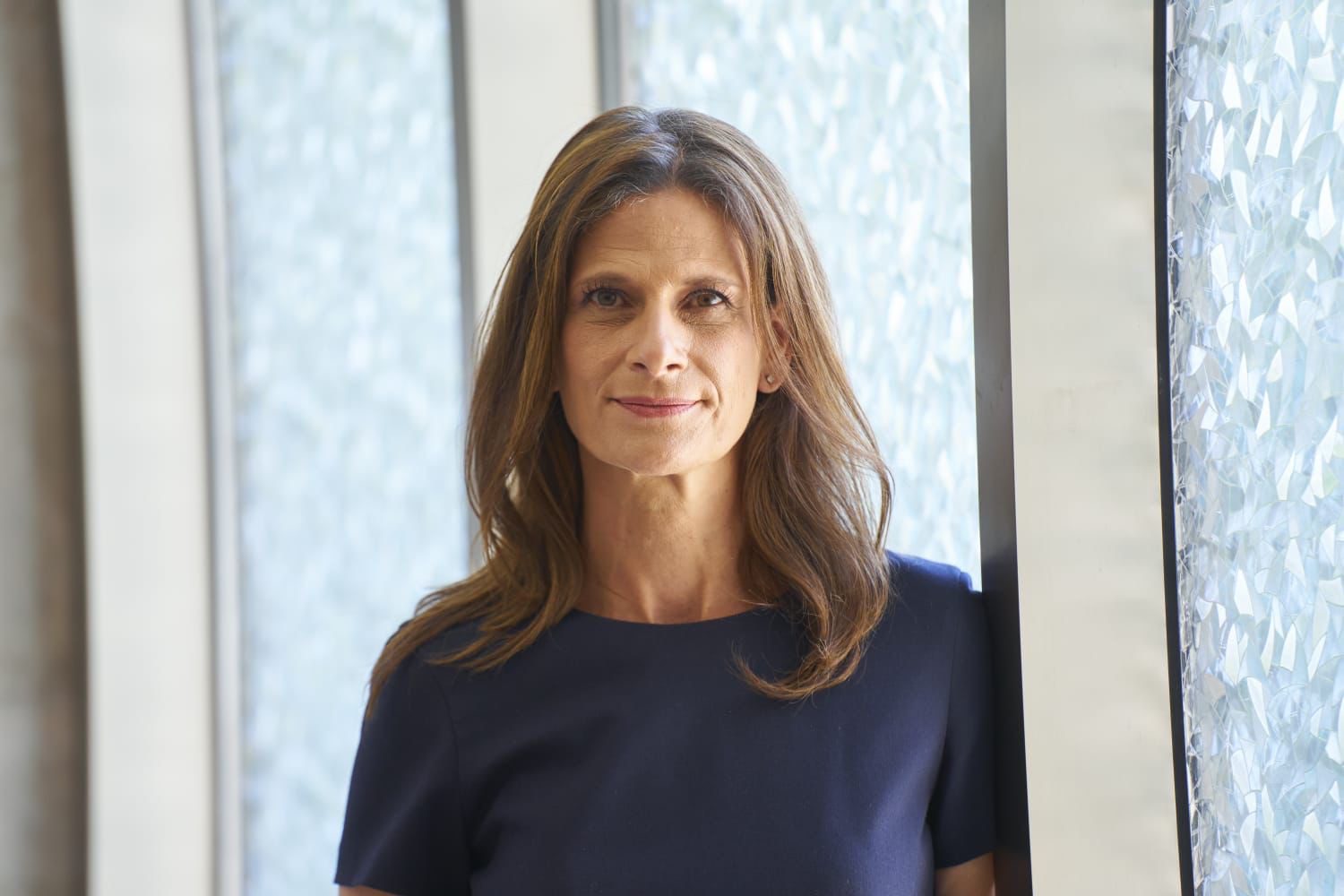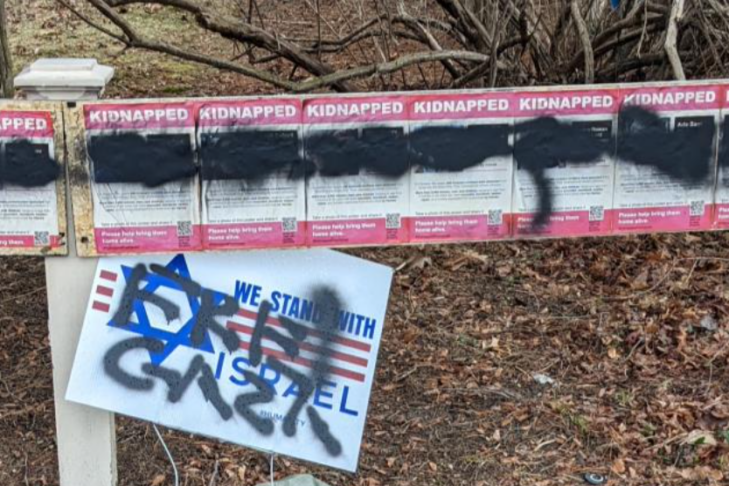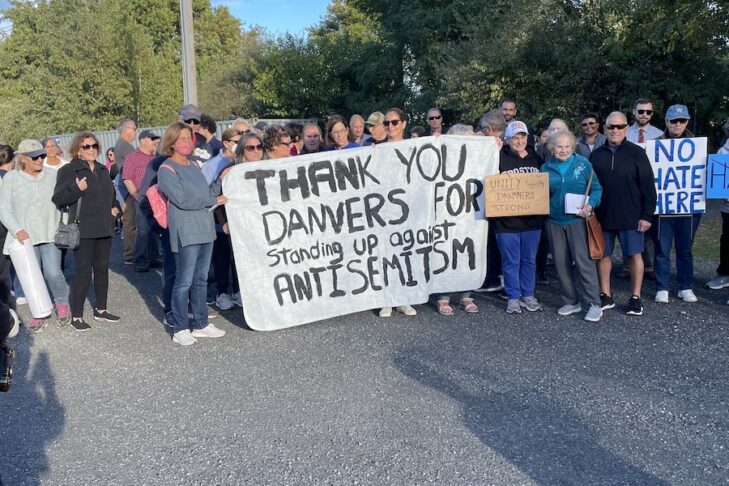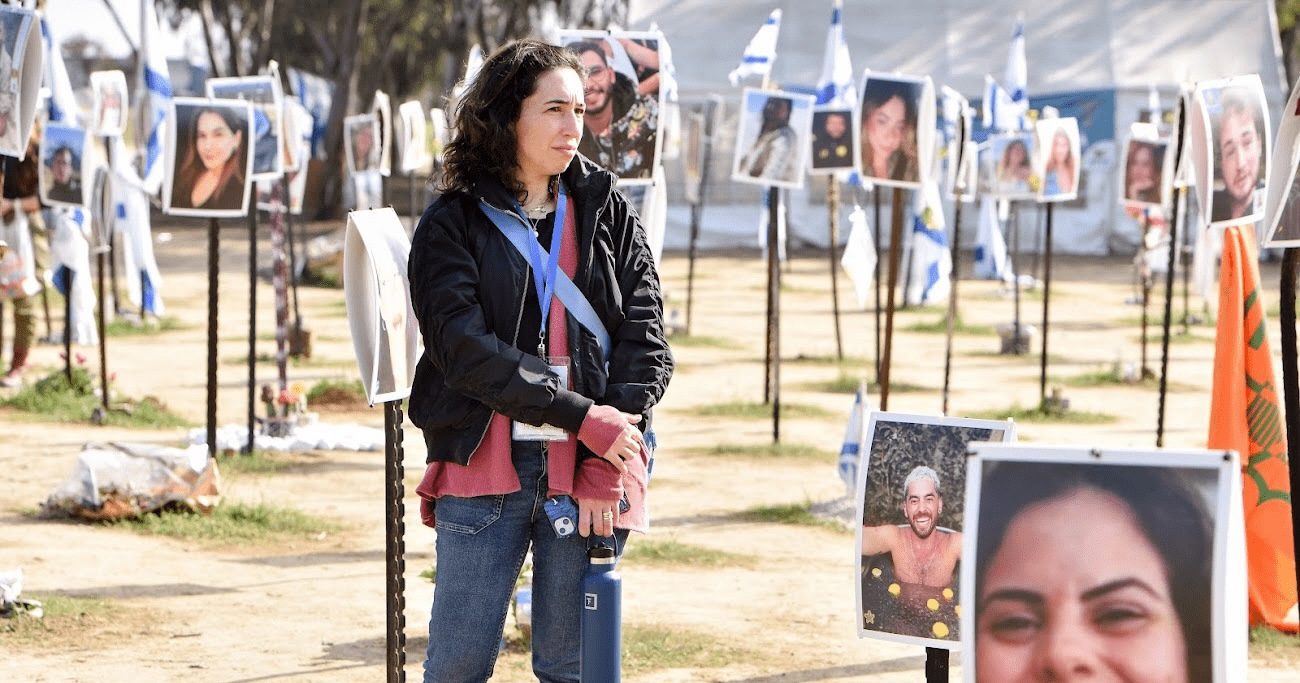By Rich Tenorio
As Israel’s special envoy for combating antisemitism, Michal Cotler-Wunsh has been seeking to forge alliances since the October 7, 2023, Hamas terror attacks on her country. In the U.S., she’s met with multiple officials, from legislators to mayors to university presidents.
She sees a number of possibilities for partnerships, including with fellow antisemitism envoys from other nations, as well as with administrators on college campuses. For her, the need has never been greater: Noting that antisemitism was surging even before the attacks, she cites an even greater rise since then, by hundreds of percentage points.
“Antisemitism is like any other form of racism and bigotry,” she said. “It cannot be fought alone by Jews. It’s not just a threat to Israel, or Jews around the world. I do believe it is a threat to the foundations of democracies, to shared principles of life and liberty.” (Learn more about how CJP is responding in Greater Boston with its 5-Point Plan to combat Jewish hate.)
“Hopefully we can make a dent in it,” Cotler-Wunsh said, “whether by coalitions of special envoys, legislators around the world, and Jewish and other leadership.”
There are roughly 30 special envoys for combating antisemitism around the world, representing such countries or bodies as the U.S., Canada and the European Parliament.
“They’re not only allies, they’re critical allies,” Cotler-Wunsh said. “Many of them advise their own governments and heads of state. They’re entrusted to monitoring and combating antisemitism.”
Part of this, she said, is through the International Holocaust Remembrance Alliance (IHRA) definition of antisemitism, which has been adopted by over 10,000 entities. She calls it a working definition, meant to be used as an educational resource, not as a censor.
Based in Raanana, she took up her current position only about three weeks before the Oct. 7 attacks. Before that, she had a wide-ranging career that included serving as a member of the Knesset, where she founded an inter-parliamentary task force to combat antisemitism on social media. Raised in Canada, she is the stepdaughter of the former Canadian justice minister Irwin Cotler, whose legal career has included defending both Natan Sharansky and Nelson Mandela at various points.
Building allyship since Oct. 7
Cotler-Wunsh’s collective experience allows her to battle antisemitism on three fronts—in international institutions, on college and university campuses and on social media.
“What I have done over the last several decades includes my own legal work as an activist, lecturer and academic,” said Cotler-Wunsh, who holds a master of laws degree from McGill University in Montreal. “It’s intersected by the research, professional and legislative [spheres]. It has been, over time, focused not just on antisemitism but on its modern, mainstream strain of anti-Zionism, as well as on the positives of Jewish indigeneity, identity and peoplehood.”
Fighting antisemitism on college campuses
On American college campuses, she would like to see more awareness of what she describes as a strong connection between many Jewish students and Zionism.
“I have a very simple demand,” Cotler-Wunsh said. “I expect an equal and consistent application of an infrastructure that protects everybody else…to those who self-identify as Zionist—Jews and non-Jews.” She noted, “Not all Jews have to self-identify as Zionist, but they cannot deny those that do have the right to do so.”
She’s pleased by the reception she’s gotten from high-level administrators. “All of the university leaders have been very civil, as I would expect from conversations with presidents, chancellors and provosts,” Cotler-Wunsh said.
Yet, she added, “It’s the complete opposite with students who may disagree but are unwilling to engage with ideas with which they may disagree in this critical moment of reckoning for academic spaces.”
When Cotler-Wunsh spoke at Stanford University in January, she recounted a particularly tense situation.
“I had to be snuck out the back door by the police,” she said. “I did not walk out the front door like any other human being.” She added that she was escorted out of the event “in the face of demonstrations and chants like, ‘We don’t want no Jew state, we want all of ‘48,’ ‘Zionist, Zionist you can’t hide, we charge you with genocide,’ and, ‘There is only one solution: intifada revolution.’”
Read about how CJP recently provided support to local Hillels to help create safer and more welcoming campuses.
Israel and global Jewry
Despite such experiences, Cotler-Wunsh sees reason for optimism for Israel and global Jewry.
“I do think this [is] a critical moment of reminder that we are a people,” she said. “When you see us as a people, what binds us together is far greater than what sets us apart, enabling [us] to overcome challenges we have faced as a people from time immemorial.”
Rich Tenorio covers antisemitism news for JewishBoston.com. His work has appeared in international, national, regional and local media outlets. He is a graduate of Harvard College and the Columbia University Graduate School of Journalism. He is also a cartoonist. Email him at richt@cjp.org.
 Share your story
Share your story 




